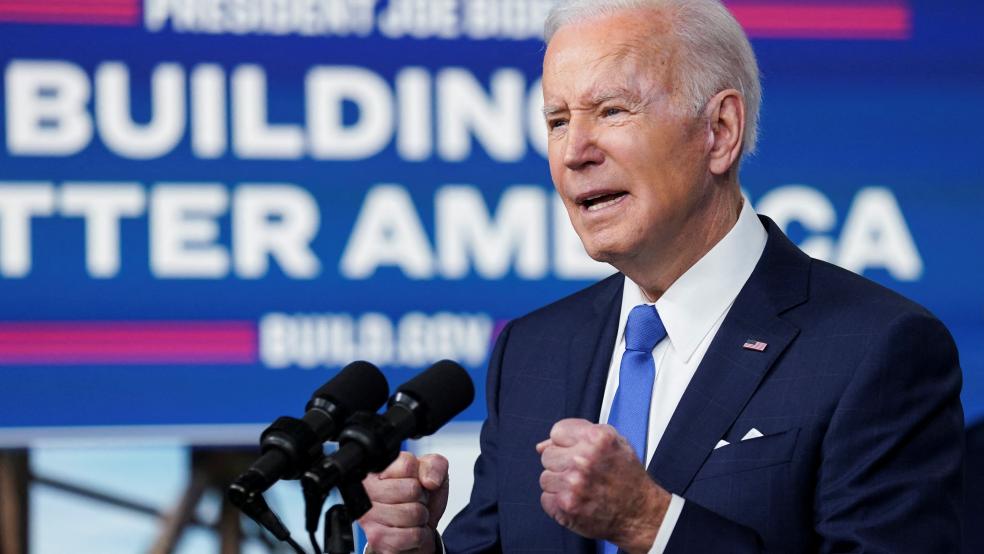As his reelection campaign shifts into a higher gear, President Joe Biden aims to convince voters that the economy is doing just fine, thanks in large part to a suite of policies he has enacted – an approach the White House is referring to as “Bidenomics.”
In a speech in Chicago Wednesday, Biden will reportedly highlight the continued growth and historically low unemployment the U.S. has experienced under his administration, while connecting the results to his efforts to control inflation, invest in infrastructure and boost manufacturing. The White House says it intends to contrast Biden’s approach with the more familiar “Reaganomics” of the 1980s.
“He rejected trickle-down economics, the theory that tax cuts at the top would tickle down – that all we needed was government to get out of the way,” Lael Brainard, director of the National Economic Council, said at a press conference Tuesday. “That failed approach led to a pullback of private investment from key industries, like semiconductors to solar. It led to a deterioration of the nation’s infrastructure. And it led to a loss of a path to the middle class for too many Americans and too many communities around the country.”
White House Press Secretary Karine Jean-Pierre told reporters Monday that you can expect to hear more about that in the coming months. “It’s a vision about growing the economy from the middle out and the bottom up — you hear us say that over and over again, because we believe that trickle-down economics does not work,” she said. “So we believe our job is to continue to speak to the American people to lay out what it is that the President is doing on behalf of American families. … And we have the data to prove it. We have the numbers to show that his economic policy has indeed worked.”
Risky strategy: One problem for the White House is that voters aren’t giving Biden much credit for the stronger-than-expected economy. His approval ratings are in the dumps and many Americans say they have little faith that economic growth will continue, even if their own financial situations look pretty good. And inflation remains elevated, even if it has fallen significantly, weighing on many consumers.
Another risk is that a recession may occur before the election next year. Bank of America CEO Brian Moynihan told CNN Tuesday that he expects the U.S. to fall into recession early in 2024, though the downturn could be mild and help bring inflation back to normal levels. Other forecasters expect to see a recession by the end of 2023.
Still, the forecasters have not had a good track record during the recovery from the Covid-19 pandemic, suggesting that the White House strategy may be more viable than it first appears. “The consensus view continues to stubbornly call for a recession starting in a few months, but the economic data are telling a far different story right now,” economist Stephen Stanley of Santander US Capital Markets wrote in a note Tuesday, per Bloomberg. “Resilience remains the watchword.”
That’s a message that should resonate with the White House as the president starts to make his argument for reelection in 2024.




